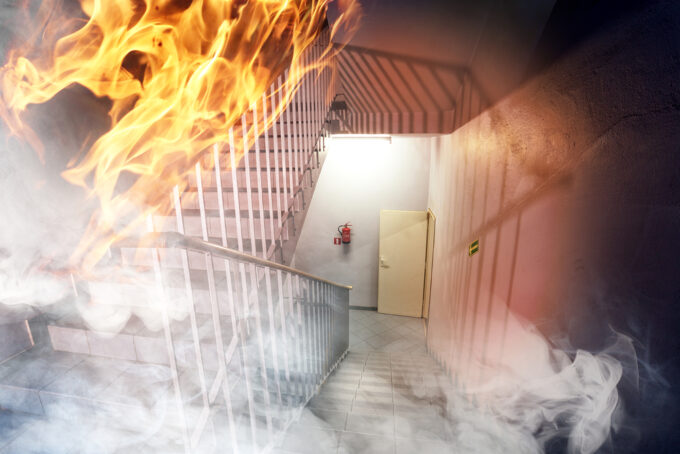This applies in the event of evacuation in apartment buildings
In the event of a fire in an apartment building, it is often forgotten that owners and tenants are responsible for ensuring compliance with the regulations. Following several incidents in apartment buildings that have already occurred this year, the Fire Prevention Advisory Service draws attention to the most important rules in stairwells.

Switzerland has the highest fire safety standards in the world, according to the Fire Prevention Advisory Board (BFB). Already this year, many fires have broken out in apartment buildings. For this reason, the BFB recapitulates in a press release the most important rules that should apply to both tenants and owners:
In case of fire, building entrances, staircases, corridors and forecourts become escape routes for the
residents. For the fire department, ambulance or police, in turn, they are escape routes. Therefore it is
essential that these places are safe and free of combustible materials.
- Entrances, staircases, intermediate landings, niches, storage spaces under stairs, corridors
and forecourts must be kept clear and safe to walk on at all times. They may not be used for any other
serve. An apartment may not be extended into the stairwell. - The passage width must be at least 1.20 m and remain free of objects.
- In apartment buildings, main entrance doors in the direction of escape must be locked at all times without a key.
can be opened. - Items such as baby carriages, bicycles, furniture and wardrobes do not belong in the stairwell.
- No storage of combustible materials such as waste paper, firewood or gas cylinders.
- Not allowed are additional finishes, ceiling and wall coverings, decorations,
Floor coverings, large-scale pictures, etc. made of combustible materials. - Extinguishing devices must be usable without hindrance at all times and in accordance with the manufacturer's instructions.
be serviced periodically. - Fire doors must be closed whenever possible. Tying down, wedging or
Blocking is prohibited.
In the case of grievances, it is recommended to talk to the house owner or the
Property management to look for.
Source: BFB
(Visited 149 times, 1 visits today)









